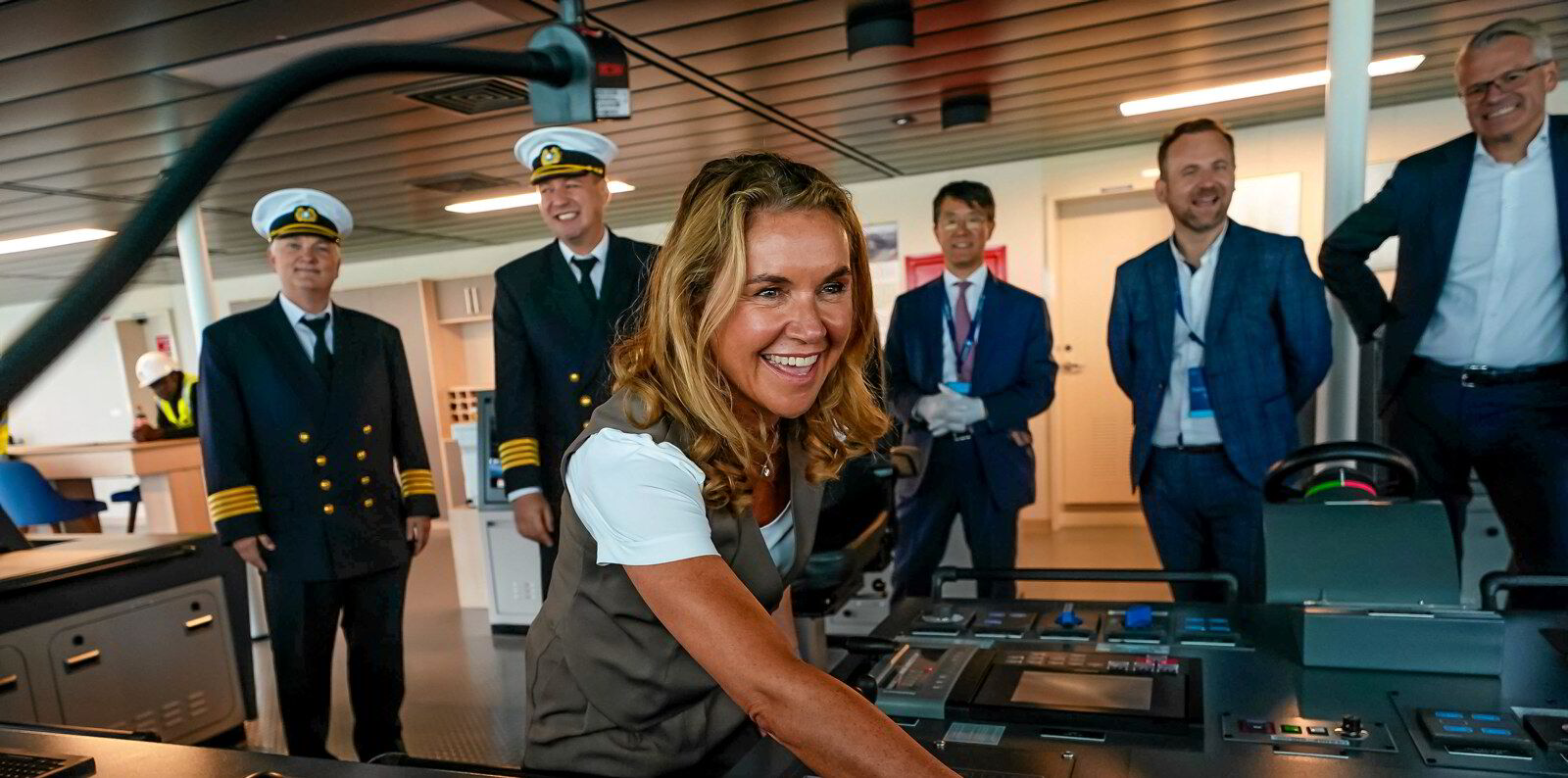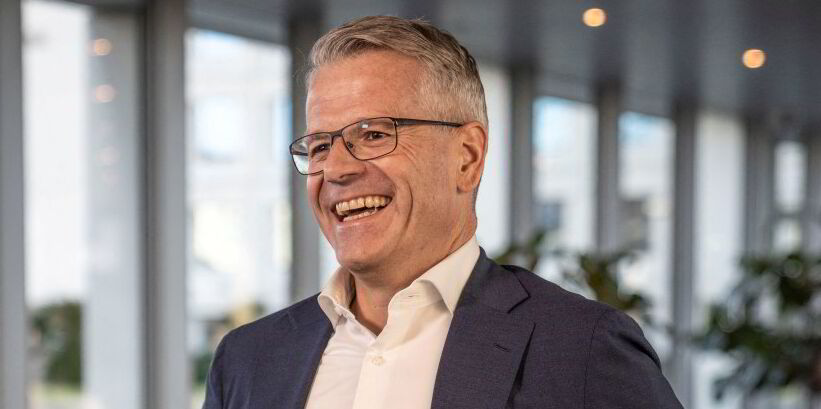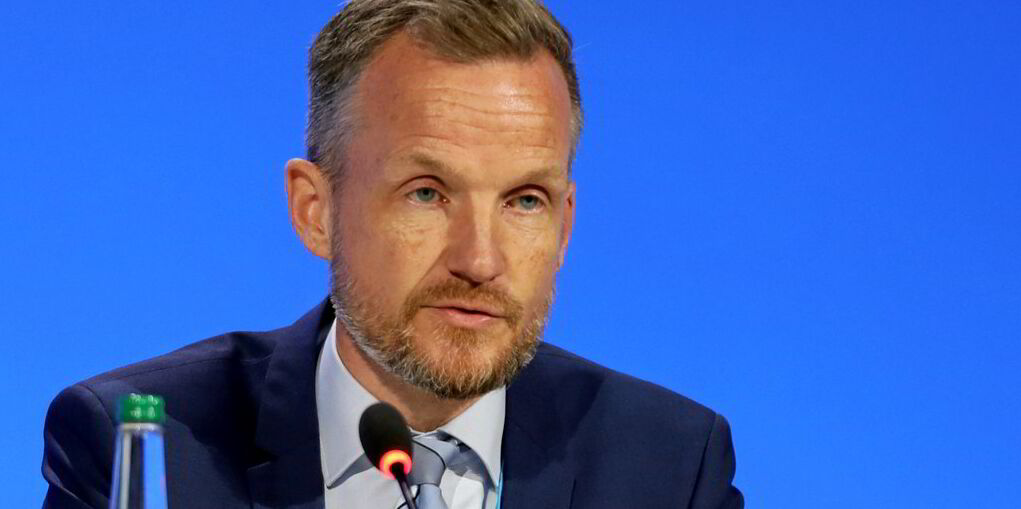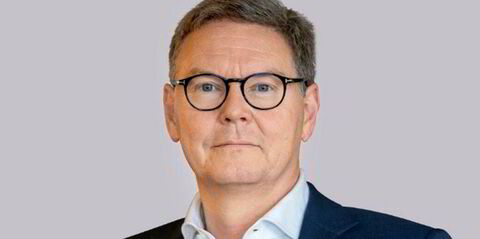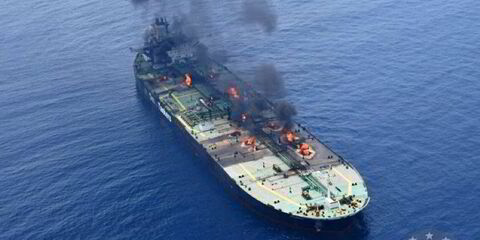The shipping industry could go from a shortage of green methanol to a surplus if regulators fail to agree on a robust price levy to ensure strong backing for cleaner fuels, a senior AP Moller-Maersk executive has warned.
Chief commercial officer Karsten Kildahl told TradeWinds that the company will only have enough green methanol for the first six of its new dual-fuel container ships by 2026 when new offtake agreements kick in.
With 25 dual-fuel methanol ships in operation or on order, Kildahl said that would still mean a significant shortfall in the medium-term supply.
But the future take-up of the fuel by customers would rely on the International Maritime Organization next year agreeing to a pricing scheme that levelled up the cost of green fuels and conventional marine oils.
Failure to do that would lead to reduced consumer demand for fuels such as methanol and oversupply in the market even as more green production schemes come on track, he said at the naming ceremony of the 16,000-teu methanol dual-fuel Alexandra Maersk (built 2024) in Felixstowe, England.
The ship is the sixth vessel in Maersk’s owned fleet able to sail on methanol in its main and auxiliary engines.
Currently, the company has enough green methanol for two of the new ships to run solely on the fuel while the rest will be run with a mix of conventional fuels, said Kildahl.
“The demand is there now for the amount of [green] fuel we have available,” he said.
But with extra supplies in a couple of years “unless we see a significantly higher demand from customers then there would be an oversupply”.

He added: “Nobody wants to be in a situation where you can get your hand on green fuels but nobody wants them.”
The company last year signed an agreement with Chinese clean energy producer Goldwind for 500,000 tonnes of green methanol a year, providing a boost to supplies from 2026.
The IMO last week made progress in talks to come up with the financial measures needed to take shipping to net zero by 2050 but the hardest negotiations are expected next year.
The 176-nation body agreed a framework to introduce a fuel tax or levy and a global fuel standard to promote the use of low-carbon fuel but the details on who pays what are yet to be thrashed out.
Maersk has a more ambitious target of turning the company net zero by 2040, but Kildahl said that just 3% of all containers shipped globally last year were sold with green fuels.
Working towards targets
Customers who pay the green premium receive third-party certification to verify their purchase of low-emission fuel, enabling them to showcase their commitment to emission reduction targets to shareholders.
Shipping lines have proposed a green shipping balancing mechanism that levels up the cost between conventional and green fuels.
“Today, our customers are stuck with the choice between going green and then the financial consequences of it. These green fuels are two to three times more expensive than conventional fuels,” said Kildahl.
“When we have an environment where we are able to penalise the black fuels and support the green fuels and take that dilemma away from the customers, then why not do it?”
Container shipping is seen as the sector most likely to decarbonise first, owing to its role in moving goods of major consumer players, which are under the most pressure to reduce their carbon footprints.
That link was highlighted by the godmother of the Alexandra Maersk, launched at Felixstowe on Wednesday, being named as Elaine Condon, a director of the clothing chain Primark.
Vincent Clerc, CEO of AP Moller-Maersk, said last week’s meeting at the IMO was a step in the right direction to close the price gap between green and fossil fuels.
“Much work remains in the coming months,” he said. “We remain hopeful and continue to do all in our power to progress the green transition of shipping.”
Read more
- Erik Hanell: ‘Onboard carbon capture an increasingly viable solution for shipping’
- X-Press Feeders spends $780m on six methanol-ready container ships
- ESL Shipping splashes $204m on new methanol-fuelled handysize bulkers
- Cosco financial arm moves forward with $1.13bn corporate bond issue
- ‘Some carriers simply need new tonnage’: These liner companies have the most old ships to replace
- Maersk green guru Morten Bo Christiansen: ‘I’d hate to be seen as endorsing LNG’
